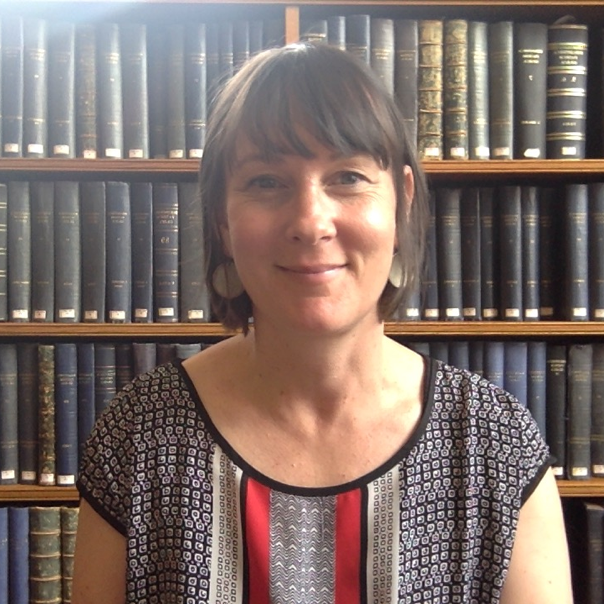Episode Transcript
[00:00:05] Speaker A: You're listening to by the well, a lectionary based podcast, Preachers recorded on the land of the Wurundjeri People.
[00:00:18] Speaker B: Hello, my name is Shaun Winter.
[00:00:20] Speaker A: And I'm Robyn Whittaker. We're here on the fourth Sunday after Epiphany. And the readings Sean and I are going to discuss today are Jeremiah, chapter 1, verses 4 to 10, First Corinthians 13, 1 13, and the gospel, Luke, chapter 4, verses 21 to 30. So let's begin with Jeremiah. Sean?
[00:00:41] Speaker B: Okay, well, this is an interesting passage because it's a passage that has a bit of a kind of history in relationship to my own story. Listeners won't know this, but my own call to ministry, for want of a better word, came when I was pretty young. I was 16 years old. And it was pretty ambiguous what was going on at one level, but also very, very clear that somehow I was being called to serve God in a particular kind of a way. And I remember those experiences very well. And I remember the importance of this text not least because Jeremiah protests that he can't possibly respond to God's call or commissioning because he's too young. And the encouragement of this verse seven, do not say, I'm only a boy. You shall go to all whom I send you. You'll speak whatever I command you. That kind of gave me some reassurance, I think, in the midst of my own youth and inexperience and struggle with this question of what a core meant. And I don't think I ever really read on, though.
And so the commissioning was fine, and the confidence that the first, the first few verses give was fine. But then of course, you get this really important thing about the challenge and the difficulty and the role of the message not only as the bringing of good news, but also the bringing of judgment, not only the bringing of hope for Israel, but also insisting on the things that need to be destroyed or that will be plucked down. Yeah, so. So what's going on here? So Jeremiah receives this call. It's probably quite an idealized version of a core narrative. There are similarities in other prophetic calls as well. But what's happening for Jeremiah in this and how does it set up the rest of the book? Rob?
[00:02:22] Speaker A: Oh, big question.
Look, Jeremiah is we, we. The lectionary skips the opening couple of verses, but he's, you know, from this long priestly line that potentially goes all the way back to Moses, where in the early.
I'm terrible at doing reverse BCE centuries, this reign of Josiah around 628 and the period right up to the exile, the destruction. So that sort of late 7th to 6th century, that's the one.
So we've got, you know, and again, these, these texts are probably written down later, but we have this sense of the destruction and the doom that's going to come, which of course, as soon as you get to this uproot and smash and destroy, there's an ominous tone immediately, you know, and Jeremiah will go on to, to prophesy and warn people and to talk about the dest to come, amongst other things.
[00:03:22] Speaker B: So the prophecy of the notion that the prophetic message is not just about a message of salvation or deliverance or hope or. But is also about the very clear indication of judgment, the very clear reading of the political and social context in such a way as to say this, this, this isn't going well and it's only going to go one way.
[00:03:43] Speaker A: Yeah.
[00:03:44] Speaker B: Even if there is a hope for expectation of salvation. The other side of it.
[00:03:48] Speaker A: Exactly. So even though God is faithful and there is ultimately mercy, there is this sense of, you know, but beware of God's wrath and God's judgment as well. And I mean, and there's some lovely little hints in here that put Jeremiah in a wider prophetic line.
So this, this sense of the God touching him, touching his mouth might make us think of Isaiah 6, where the coals. And the word here is a, is a word for strike. It gets used in Job when Satan strikes down. Job's fat. So this isn't perhaps some delicate little divine touch on the lips. This might be a kind of a, you know, a smack, a kind of a, you know, I don't want to use violent imagery for God, but, you know, the divine is terrifying.
[00:04:34] Speaker B: Right. And Jeremiah, later on in Jeremiah, I mean, it's full of kind of personal self reflection on this vocation and there's very violent imagery used about, you know, Jeremiah not wanting to speak and God basically compelling him, using quite violent language at that point. Point. So, so this notion that Jeremiah really wrestles with, this vocation, it's not something that he would, he. He feels he chooses in any way, shape or form, is it?
[00:05:00] Speaker A: No, no, Andy. And, and almost the sense of, like you say that the compulsion, this, this putting words in mouth again, this, this echoes Moses in Deuteronomy, where when Moses says, but I'm basically a stammer, I can't speak, you know, don't make me do this. And God promises I will put my words, he tells the people, I will put my words in his Mouth, he becomes this mouthpiece, this agent for God.
You know, both of those are incredibly hard callings.
So this does invite wider refresh, reflection on the nature of calling. And I think there is a lovely balance here between the terrifying nature of that calling and that sometimes we are asked to do a task that we don't want to do, like proclaim the consequences and the impending judgment as a result of, you know, the reckoning and, and sort of judgment of God. But also this assurance that God is with right, that God is with this prophet and he knows Jeremiah intimately and has done since his conception, I think is part of the balance.
[00:06:05] Speaker B: The, I'll just mention it that this particular passage from Jeremiah in particular, it's notion that that divine call comes before I formed you in the womb, I knew you and consecrated you to be a prophet to the nations. That's picked up in Paul's letter to the Galatians. In Galatians 1, Paul uses exactly that language to connect himself back to that prophetic tradition himself, God, who set me apart, apart in my mother's womb and called me to be the apostle to the Gentiles. So this sense of vocation and the challenge of it and the sense of being given a message that other people won't necessarily understand or accept, it's embedded in the prophetic tradition in general and extends into then the way in which in the New Testament both Jesus and Paul and the other apostles inherit that prophetic tradition in the message that they bring as well. So it's not all sweetness and light and salvation. It's actually also about speaking truth and judgment and reading the context that you're in.
[00:07:04] Speaker A: Exactly, exactly. And I want to pick up, and we'll get to this in a moment, perhaps with Luke, the four the nations that you've just, you know, said gets picked up in Paul. I think we're going to see that in Jesus ministry as well, which again is going to come with some conflict and you know, as soon as, you know, for the nations is immediately moving beyond Israel. Absolutely.
So, so we have this, you know, this passage is beautiful and it speaks to lots of us who had calls at quite a young age.
And there's both conflict and, or comfort and challenge here. I think, you know, that, that, you know, there is sometimes judgment that has to precede restoration. I mean you could play with that as a theme. I think if we think of the grand narrative of Jeremiah that judgment does precede restoration and what that means for some of our own communities is we grapple with our history or we grapple personally with things we've done wrong or where we've fallen short. And that consequence, and dealing with the consequences of that often does have to precede the restoration for there to be true reconciliation.
[00:08:09] Speaker B: I think that's right. There's a couple of things I'd say there. The first is that, I mean, the. The role of prophetic ministry in the Hebrew Bible is. Is not to kind of bring a message that somehow Israel has never heard of before or was completely unaware of. It doesn't completely come from outside.
Prophetic ministry is about calling people to. To the message that actually is embedded in their relationship with God, in their. Their Scripture, in their prayer, in their history. Jeremiah is a text deeply connected to the promises of Deuteronomy.
And so. So the vocation is a prophetic vocation. And sometimes we need those voices, but the vocation is actually the vocation of the people.
[00:08:53] Speaker A: Yeah.
[00:08:53] Speaker B: And that's the crucial thing that I think we need to always bear in mind. We're not looking for the individual to come and tell us what's what. What we actually should be doing is bringing ourselves back into a deeper understanding of what it is that God calls God's people to be in the context of sometimes a very difficult and challenging and traumatic world. The other thing I like about Jeremiah is that as the book unfolds, of course it's deep that this is all reflected on deeply, personally. Jeremiah is not a heroic or a courageous or a particularly impressive figure.
He's obviously struggled with those experiences, and that's reflected, refracted through the kind of tradition of his own, you know, meditations and wrestlings with God. And there's trauma there. There's. There's broke. There's brokenness there. There is a deep sense of kind of struggle and anguish. And I think it's important to recognize that, you know, speaking truth, prophetic vocation, inhabiting that calling to be the people that God wants us to be in that challenging world doesn't require us to be heroic. No, it is actually ordinary broken people.
[00:10:01] Speaker A: Who are invited precisely into that ministry and the dialogue. So. So Jeremiah and God kind of go back and forth a lot. There's a lot of dialogue. And I think that is almost a metaphor for the. For the dynamic you're describing of this is also a wider dialogue of God and God's people. So it's always for the community.
[00:10:19] Speaker B: So it's representative. It's a representative form of ministry that's being exercised.
[00:10:23] Speaker A: Yeah. Shall we move on to Luke 4?
[00:10:25] Speaker B: Let's do that.
[00:10:29] Speaker A: If you'd like to know more about by the well or any of our Hosts, please visit bythewell.com au.
[00:10:41] Speaker B: So last week, Rob, we looked at Luke chapter 4, and we looked at verses 14 through to 21, which was the story of Jesus arriving at the synagogue in Nazareth and reading from the scroll of Isaiah and claiming that the contents of that scroll were being fulfilled in the hearing of his audience. And he was received positively. All spoke well of him and were amazed at his gracious words.
But there's a plot shift and a half that happens immediately following that verse. So what, what happens in the second part of this story?
[00:11:13] Speaker A: Yeah, so the lectionary today gives us verses 21 to 30. And really, in those short few verses, we go from amazement at his gracious words to we want to murder him, basically. Ye. You know, there is an enigmatic ending to this where he just. They try and throw him off a cliff and he just somehow passes through their midst. So we get sort of spiritual Jesus who somehow manages to just sort of vaporize. And.
But so I mean, the key question is, what has he said in between that has so angered the people that they move from a kind of a positive amazement at his gracious words to literally wanting to throw him off a cliff.
[00:11:54] Speaker B: Yeah, that's exactly right. So they respond with, is not this Joseph's son? Which I think is a compliment. It's like, my goodness, this, you know, this small town boy is, look, look at this eloquence, look at this understanding, look at this authority with which he interprets scripture. And then they're met with a response in the form of this kind of strange, slightly odd proverb. Doubtless you will quote to me this proverb, doctor, cure yourself. And you will say, do in your hometown the things that we've heard you did in Capernaum. And it's a bit out of whack because actually Jesus hasn't quite got to Capernaum to do anything yet. So, so we're.
It's an interesting kind of summary of the kind of conflict that Jesus will experience in the rest of his public ministry. But what does that proverb do? What is it that they're trying to encourage Jesus to make clear or to reveal about himself?
[00:12:47] Speaker A: Well, his identity.
[00:12:49] Speaker B: Right.
[00:12:49] Speaker A: I mean, who. Who he is is the. Is the key question here. And we've had the reading of the scroll which points to him as this spirit, anointed suffering servant.
I don't know whether I'd quite go as far as using the word Messiah just Yet. But anointed one effectively means Messiah. So that's a bit of a.
[00:13:10] Speaker B: You know, we can go with that.
[00:13:12] Speaker A: Yeah, but and also that, you know, maybe the link here to Jeremiah is we get in this verse 24, you know, no prophet accepted in a prophet's hometown. Again, something about Jesus portraying himself as a prophet, stepping into that Isaiah prophecy, but also into the long line of prophets who get rejected by their own.
[00:13:31] Speaker B: So I think that's exactly right. So I'm not sure we actually know what the doctor cure yourself. No, I'm not sure is really getting at.
[00:13:38] Speaker A: But that's why I just skipped right on past that, Sean.
[00:13:40] Speaker B: But there is that very clear thing that they've. They've applauded Jesus and given him praise, and he responds with, okay, well, that's okay, but you probably want me to now do things for you that you've heard that I've done in Capernaum. Let me do. But maybe you should just be aware that sometimes prophets aren't always welcomed by the people who know them best. And then the transition comes in verse 25. The truth is this.
[00:14:05] Speaker A: Yes.
[00:14:06] Speaker B: So you thought it was about this, but it's actually about this. So what's the truth that comes from verses 25 onwards?
[00:14:13] Speaker A: And the truth is encapsulated in two examples he uses of Elijah and Elisha, both very famous prophets in the Jewish tradition and accounts, I mean, selective accounts of them going, in the case of Elijah, to a widow who is inside, and so a gentile outside of the nation of Israel. And then same with Elisha. And some of us know that story well, the famous cleansing of Naaman the Syrian of his leprosy.
So, I mean, basically Jesus is saying, yes, I'm a prophet, my own town will reject me.
And I stand in this Elisha, Elijah tradition, where God is sending me beyond the borders, God is sending me to other people. And that's going to include the Gentiles, because we've got this. So this whole idea of the year of the Lord's favor that we had in verse 19 is suddenly being expanded because that favor might be falling on people that you don't consider your neighbor and you don't consider perhaps deserving of God's favor.
[00:15:09] Speaker B: Yeah, no, that's good. I think. So one king, king 17 is the first story, the widow of Zarephath. And then 2 Kings 5 is the name in the Syrian story.
And it's interesting that elsewhere, of course, in the things that Jesus does, particularly the healing stories and the feeding miracles and other Miraculous accounts in the Gospel narratives, that very strong sense of him fulfilling patterns of Elijah, Elisha type prophetic vocation is pretty paramount, I think. Not just in Luke actually, I think it's elsewhere.
[00:15:42] Speaker A: Yeah.
[00:15:43] Speaker B: As well. So, so Jesus inhabits that. But in this context has landed on this notion of. Yep. And these things went to people beyond the boundaries of Israel. I guess the question I've got, Rob, is, I mean elsewhere in Luke actually most of the time Jesus is still Israel focused, most of the, most of the public ministry is still oriented towards the people of Israel, the conflict is between Jewish religious leaders, etc. Etc.
So what's this doing? Is it forecasting something that is there in the ministry of Jesus but kind of gets worked out after Jesus resurrection?
[00:16:18] Speaker A: I think so. I mean if we remember that Luke, most likely most scholars think wrote Luke Acts. So if we think of them as a sort of a two volume series and of course in Acts we get, you know, after Jesus ascension and the sending of the Spirit, we get this expansion of the mission and we'll get those famous stories of the Ethiopian eunuch who's baptized on the roadside basically and other ways that, that the divide, you know, the visions of Peter about what's clean and not, you know, otherwise, that the division between Jewish and Gentile gets broken down and the graciousness of God that extends to gentiles who wouldn't normally be in the fold is sort of exhibited. And so I think we're getting some foreshadowing here in this from the very beginning of Jesus ministry.
And, and maybe some foreshadowing too in the rather extreme reaction in verse 28 that everyone's filled with rage and want to kill him. But you know, Lu is in a sense giving us a hint of. It's these kinds of teachings that are going to end up killing him.
[00:17:21] Speaker B: Right. So that the, just like Jeremiah, the calling and the commissioning isn't enough. Once you actually realize the nature of the message, then it becomes a much more challenging.
[00:17:30] Speaker A: Yeah.
[00:17:30] Speaker B: And difficult vocation to embody. The other thing about these two examples, and it's, it's a bit tricky just to nail this clearly, but both the woman, the widow and Naaman, the sermon, that is, they're not just gentiles, but she's a widow, he's a, a leper.
[00:17:48] Speaker A: Yeah.
[00:17:48] Speaker B: And so there's, there's indications of the potential that this is not just about ethnicity, this is also about something to do with social status, position in society.
[00:17:59] Speaker A: And so great point. Because they're both marginalized that's right, people. Yeah.
[00:18:02] Speaker B: So. So maybe it's not just the idea that it's going to go outside of Israel, but also that there's this particular focus in Luke on those who are in those marginalized categories in society, and that becomes the nature of the. The kind of shock value.
And I think that's. That's probably remains the. The more difficult part of the message. Perhaps, you know, we now live post Easter in a gentile majority. Like the question of ethnicity might not be the most shocking outworking of what the gospel message looks like or how we. In how we place ourselves in the program of Jesus. It might be about asking questions about, well, where are those places of marginalization, of social discrimination, of distinction, and what does it mean to say, you know what that thing you sing about and talk about in church, it's actually not for you.
[00:18:52] Speaker A: Yeah.
[00:18:52] Speaker B: It's for them.
[00:18:53] Speaker A: Right? Yes.
[00:18:54] Speaker B: So you may be in the building celebrating it all and reading the right text and doing everything, but then what if the preacher says, actually, good to see you all, we've had a nice hour, but that's got nothing to do with you what we've just done. It's all about those people out there and what happens to them.
[00:19:08] Speaker A: Yeah. And God's favor is God's grace.
[00:19:10] Speaker B: That's where God's favor lies.
[00:19:11] Speaker A: And there's a small part of me that. I mean, this is a very serious passage at one level, but it's also like deeply funny that Jesus has said a prophet is often not accepted in his own town, and then they literally live that out by trying to kill him. I mean, it's. It's. I do wonder if Luke's being a bit sort of sarcastically dramatic in the immediate fulfillment of what Jesus said. Right.
[00:19:32] Speaker B: Well, it's a pretty major plot shift, as I said. You know, it kind of turns the story on its head and. But I think you're right, foreshadows then the way in which the gospel narrative itself is structured along those lines. You know, Jesus.
The other shift in Luke is very famously at Luke 9:51, having kind of lived out this Isaiah vision program, healed the sick, delivered people from demon possession. You get this. And he set his face toward Jerusalem. And at that point, yes, the pat. The. This gospel becomes about something very different from just the celebration of kind of messianic acts of. Of power and deliverance and salvation.
And for me, the Christology question is deeply connected with this. The question of who is this person who can. Who takes up this vocation and its challenges and the hostility that comes with that.
And I think implicit here is an understanding that it is precisely that notion that Jesus is the Messiah, is the one who fulfills those hopes and expectations and is related to God in a particularly kind of distinctive or unique way. That means that he is the one who takes these challenges on and faces that and ultimately conquers that hostility.
[00:20:46] Speaker A: Yes. And that is the extra thing Jesus does, because there's also a level here that Jesus is behaving much like the prophet Jeremiah. Right. So we've. We've got this prophecy theme that links both those two readings. The difficulty of the call, you know, the hostility one will confront, all of. Yeah, but.
[00:21:04] Speaker B: And Luke has this idea that this is all actually working out a kind of divine plan, the notion of divine providence. These are the things that must take place. And therefore that delicious detail at the end when they try to throw him off the edge of the cliff, he passes through the midst of them and goes on his way. And, you know, the language of the way becomes the language used to describe that journey towards Jerusalem. Going on his way is the language that's used of Christians later on in the Acts of the Apostles.
And you get here, I mean, John's Gospel works with this a lot. You know, Jesus kind of can't be touched.
[00:21:37] Speaker A: Yes, yes.
[00:21:38] Speaker B: Because of his relationship with God.
[00:21:40] Speaker A: Yep.
So moving on to 1 Corinthians 13, and the lectionary gives us verses 1 to 13, which is really the chapter.
Now, this is a. One of those tricky things to preach, I think, because in some ways this is probably an incredibly well known passage because it gets read at every second wedding. But that doesn't mean you shouldn't preach on it because we rarely get to kind of unpack it in the way we might like at a wedding, because you're at a different kind of occasion.
[00:22:11] Speaker B: It's a really good reason for at least once in your lifetime, if you're a preacher, to preach this on a regular Sunday morning and outside of the. The context of marriage and a wedding. Because of course, it's not about marriage primarily.
[00:22:24] Speaker A: It's not about romantic.
[00:22:25] Speaker B: It's not about romantic love, and it's not even about the love between two individuals or what sustains that form of interpersonal relationship.
[00:22:33] Speaker A: Yeah.
[00:22:33] Speaker B: 1 Corinthians 13.
It used to be thought that Paul just kind of, you know, having had one go, you know, a kind of creative bit of imagination around this notion of the body and, you know, the body turning into one eye or whatever else, he then goes off on a second one and it's kind of disconnected.
[00:22:49] Speaker A: Yeah.
[00:22:50] Speaker B: Most scholars are agreed. Now, 1 Corinthians 13 is there to say, if you want the kind of community that I've just talked about in chapter 12, where harmony and concord are possible despite diversity and difference and inequality of social status, if you want that kind of community, then love is the thing that you need. And you need to understand how love operates and what love looks like.
[00:23:16] Speaker A: Yeah.
[00:23:17] Speaker B: And so we get this kind of self contained meditation, him reflection. And my view is that this is probably an example of Paul doing something that we know of in the ancient world called an encomium. Encomium.
It's economistic speech. And basically this is where you take usually a person, but you could take a virtue as well. And here we've got a virtue. And what you do is you kind of praise it. You kind of lift it up and elevate it and say, look at this, look at this, look what it achieves. Look what this person did. Look what they brings honor to them, look how they compared to other people. And you do it as a way of praising them. And this is what Paul seems to do here. He takes the virtue of love, and a bit like a kind of diamond, he turns it round and says, look how the light glistens off of this edge and this side and this facet. And he does so in an incredibly sophisticated way, even despite the content at the level of technical Greek elevated prose. This is an extraordinary passage and shows something about Paul's, I think, instinctive rhetorical abilities as well as his theological insights. Of course.
[00:24:30] Speaker A: Yeah, and that's really helpful, I think, even if you didn't preach last week or didn't preach on the 1 Corinthians 12 passage last week. We talked about it in last week's podcast. I think the connection between the type of community you want to be. Yeah. And love being the absolute key virtue to allow that. I mean, I think we skip right over it, but you know where this ends on faith, hope and love. And of these three, the greatest is love. I mean, that should really give us pause. On the one hand, it sounds lovely, right? Oh, yes, love, great.
But more important than faith and more important than hope, or we can translate that faith word, more important than belief.
And I think my pause is because so often in the church, we get absolutely obsessed with right doctrine and right kinds of that. You believe the right kinds of things. You can say the right kinds of things about who Jesus is or what the Bible says. And Paul is kind of saying, well, if you can do all that. That doesn't matter if you don't have love.
[00:25:32] Speaker B: So I don't think he's quite saying that love is more important than the other two. I think what he's saying is that love is the lens through which we understand what the other two look like. And I don't even think that faith language in Paul means belief primarily. I think it's about loyalty and faithfulness, allegiance and those kinds of ideas. And Paul in Galatians will talk about life in the spirit being basically about faith working itself out through love. So love is the gateway into a fuller understanding of what this faithfulness and this allegiance looks like. And it's the content of Christian hope, ultimately, that nothing can separate us from the love of God in Jesus Christ Our Lord. Romans 8, for example. So love becomes the kind of lens through which we read these. These other things. And what's interesting is that just prior to that kind of rhetorical conclusion, Paul has gone through a list, basically, of all the things that he's been talking about in the letter, far so, tongues will cease, knowledge, it will come to an end, etc. Etc. These are the things that Paul has just been dealing with in the argument of the letter and will go on to talk about in chapter 14. And of the things that the Corinthians have got kind of so divided about, it seems, and often confused about. And Paul is basically saying that if those things are just the. If. If those things are what it's all about, you've missed out.
[00:26:58] Speaker A: Yep.
[00:26:59] Speaker B: And the challenge for the preacher is, I think, well, find the three things in your church that are going on and then ask the question, what does it mean to read that conflict or that challenge or that problem through the lens of the priority of life or.
[00:27:12] Speaker A: Even that gift, the one gift we value. It might be some music gift or the gift of preaching. But what does that look like? If. If. Yeah. With that love lens on. And could it be more loving or.
[00:27:22] Speaker B: Exactly right. So you need to recontextualize. Even if. Even though these words are quite kind of abstract and kind of.
[00:27:30] Speaker A: Yeah. Lofty and beautiful.
Can I ask you a really pragmatic question? This. The love word Paul uses here is the agape word.
Can you just unpack that for us? We've said it's not romantic love, but. Yeah. What do we mean by love? Or what does Paul mean by love?
[00:27:47] Speaker B: Well, so this is the main word that Paul uses for love. There are other alterations, alternative forms of Greek words, one referring primarily to kind of sexual love. And sexual desire, the other one referring much more to kind of friendship or various forms of social relationship.
Agape.
Agape as a word doesn't mean anything. So it's not like Paul had a meaning that he then took. Agape works itself out in the way in which it's deployed and used in the texts of the early Christian movement.
And there's been a good deal of scholarship. A brilliant recent book by German scholar Oda Vishmayer on agape in the New Testament, which makes it very clear that basically what we have here is an outworking of the twin command to love God and love neighbor that's there in the Jesus tradition that generates an ethical trajectory into early Christian ethical reflection. It's there very clearly in Paul, and it works its way right the way through until the kind of second or third century as the defining characteristic. And it has something to do with what I tell my students, has to do with other regard, the orientation towards the needs, the situation, the weaknesses of the other, so that your attention and your virtue is constructed by how well you relate to other people rather than, you know, a particular kind of form of moral holiness or purity.
[00:29:17] Speaker A: Yes. Or even feeling. Because for us, love is so much about emotion and feeling something. This is about behavior and ethical behavior towards the other.
If you are gonna. Sorry, if you are gonna pick up the theme of love in your preaching this week, I would go take a look at some, you know, other. Other texts. I mean, if you go to another Pauline text, There's the Romans 13:8 to 10, where he talks about love one another, because this is the only debt or obligation you have to one another is to love. And if you do that, you've fulfilled the whole Torah, the whole law. We get similar teaching in Matthew 22 about the greatest commandment. Jesus is asked this.
And Matthew adds to the other synoptics that, you know, the greatest commandment is love the Lord your God. The second is like it, love your neighbor as yourself. And Matthew adds, and on this hangs all the law and the prophets. Like, this is the key to faithful living effectively. And of course, by the time we get to John, it becomes embodied in the divine, where God is love. And if we live in God, we, you know, so, I mean, just to sort of fill out the picture, not that Paul hasn't done a wonderful job in this chapter, but this, you can't overemphasize what a consistent Christian ethic this is across all of our New Testament texts and beyond.
[00:30:31] Speaker B: It extends into the patristic period.
Augustine famously said that if I read Scripture and it doesn't lead me to love God or love neighbor more than I did beforehand, then I've misunderstood it. I should go back, read it again. But it extends also into all sorts of contemporary moral reflection. So at the time of recording, Robin, we will have heard last week of the death of the philosopher and feminist writer. Bell hooks.
[00:30:53] Speaker A: Yes.
[00:30:53] Speaker B: Who wrote very profoundly about the meaning and the significance of love in relationship to the quest for justice. And precisely at that point, it's the notion that love is not something that is said or conveyed or felt. It's something that is done. It's an action or a practice.
[00:31:09] Speaker A: Thanks, Sean.
By the well is brought to you by Pilgrim Theological College and the Uniting Church in Australia. It's produced by Adrienne Jackson. Thanks for listening.





